 We recently received an email from an old friend who was looking for clarification and help for her husband’s daughter.
We recently received an email from an old friend who was looking for clarification and help for her husband’s daughter.
The daughter works as a sales person for an optical equipment company receiving 100% of her compensation as commission.
There is also a bonus structure based on “sales” at the end of the fiscal year.
WHEN THE YEAR ENDED …
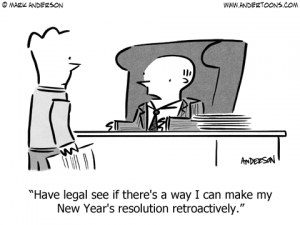 When the fiscal year ended, there were several last minute “sales” for which the company was declining to recognize for her bonus.
When the fiscal year ended, there were several last minute “sales” for which the company was declining to recognize for her bonus.
The “reasons” given in the email included: The orders arrived on the East Coast too late to be shipped; the Sales Manager didn’t want her sales to exceed the sales of the owner’s son, and other emotional issues.
But it was clear from the various issues, that she didn’t really understand what constituted a sale on the part of the company.
WHEN IS REVENUE RECOGNIZED?
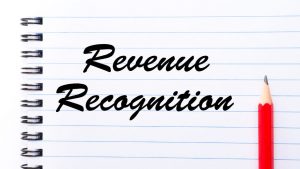 There are several International Financial Reporting Standards criteria for the recognizing revenue on the sale of goods and services.
There are several International Financial Reporting Standards criteria for the recognizing revenue on the sale of goods and services.
They break down into Critical Events and General Rules with some exceptions.
The Critical Event Approach provides five criteria for identifying the critical event for recognizing revenue on the sale of goods:
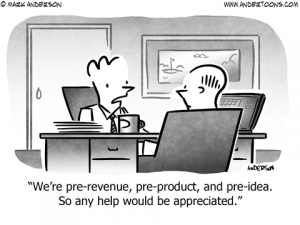 1. Risks and rewards have been transferred from the Seller to the Buyer
1. Risks and rewards have been transferred from the Seller to the Buyer
2. The seller has no control over the goods sold
3. Collection of payment is reasonably assured
4. The amount of revenue can be reasonably measured
5. Costs of earning the revenue can be reasonably measured.
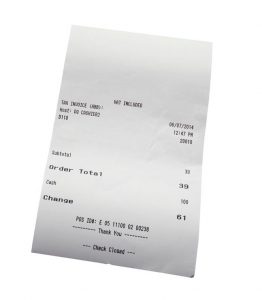 1. Revenues are realized when cash or claims to cash (receivables) are exchanged of goods or services. The revenues can be recognized when the asset received in such an exchange are converted to cash or a claim to cash
1. Revenues are realized when cash or claims to cash (receivables) are exchanged of goods or services. The revenues can be recognized when the asset received in such an exchange are converted to cash or a claim to cash
2. Revenues are earned when such goods or services are transferred or rendered. Both such payment assurance and final delivery or completion (with allowances for warranty, returns, etc.) are required for revenue recognition.
UNIQUE CIRCUMATANCES …
 There are unique circumstances that are related to revenue recognition:
There are unique circumstances that are related to revenue recognition:
1. Revenue from rendering services are recognized when the service is completed and invoiced
2. Revenue related to the use of company assets (money, rent from using fixed assets or royalties for using assets) is only recognized as time passes and the asset is used and is or maybe invoiced for the percentage use of the asset.
3. Revenue from the sale of an asset, other than inventory, is recognized at the point of sale when it takes place.
SEVERAL EXCEPTIONS …
There are several exceptions to the revenue recognition criteria both for revenues that cannot be recognized at sale and for revenue that can be recognized prior to a sale:
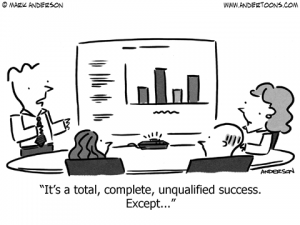 1. If the sale contains a buyback agreement in which the company sells a product and agrees to buyback the product after some time. If the buyback covers the cost of the product and any related holding costs, the “sale” cannot be recognized until the buyback expires.
1. If the sale contains a buyback agreement in which the company sells a product and agrees to buyback the product after some time. If the buyback covers the cost of the product and any related holding costs, the “sale” cannot be recognized until the buyback expires.
2. If a company experiences a high rate of returns and cannot reasonably estimate those returns, it cannot recognize the revenue until the returns can be reasonably estimated and reserved for against the revenue.
3. In companies with long term contracts such as construction or development and the contract includes a provision for invoicing based on a percentage of completion clause, then revenues may be recognized based on the agreed upon percentage of completion.
 4. There is also and exception that allows revenue recognition even when there is not a “sale” at all. This generally applies to agricultural products and minerals. There is generally a ready market with reasonably assured pricing and the units are interchangeable with a low cost of selling and distribution.
4. There is also and exception that allows revenue recognition even when there is not a “sale” at all. This generally applies to agricultural products and minerals. There is generally a ready market with reasonably assured pricing and the units are interchangeable with a low cost of selling and distribution.
A GOOD EXAMPLE …
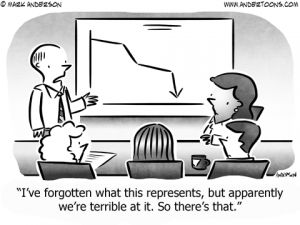 A good example of the problems that can occur with improper revenue recognition was a company that became a client of Revitalization Partners where they shipped product prospectively to dealers with rights of return if not sold and also gave 180-day payment terms.
A good example of the problems that can occur with improper revenue recognition was a company that became a client of Revitalization Partners where they shipped product prospectively to dealers with rights of return if not sold and also gave 180-day payment terms.
They were essentially using the dealers as warehouses, however they invoiced them, treated the shipment as revenue and an as account receivable when shipped. They had no idea if the product would get sold and their process led to problems with their bank and credit line. Part of our process was to restructure their sales process for a new bank.
As for our sales person and her bonus, a discussion with her management as to how her “sales” do or do not fall into these categories, may be helpful.
We specialize in improving the operational and financial results of companies and providing hands-on expertise in virtually every circumstance, with a focus on small and mid-market organizations. Whether your requirement is Interim Management, a Business Assessment, Revitalization and Reengineering or Receivership/Bankruptcy Support, we focus on giving you the best resolution in the fastest time with the highest possible return.


